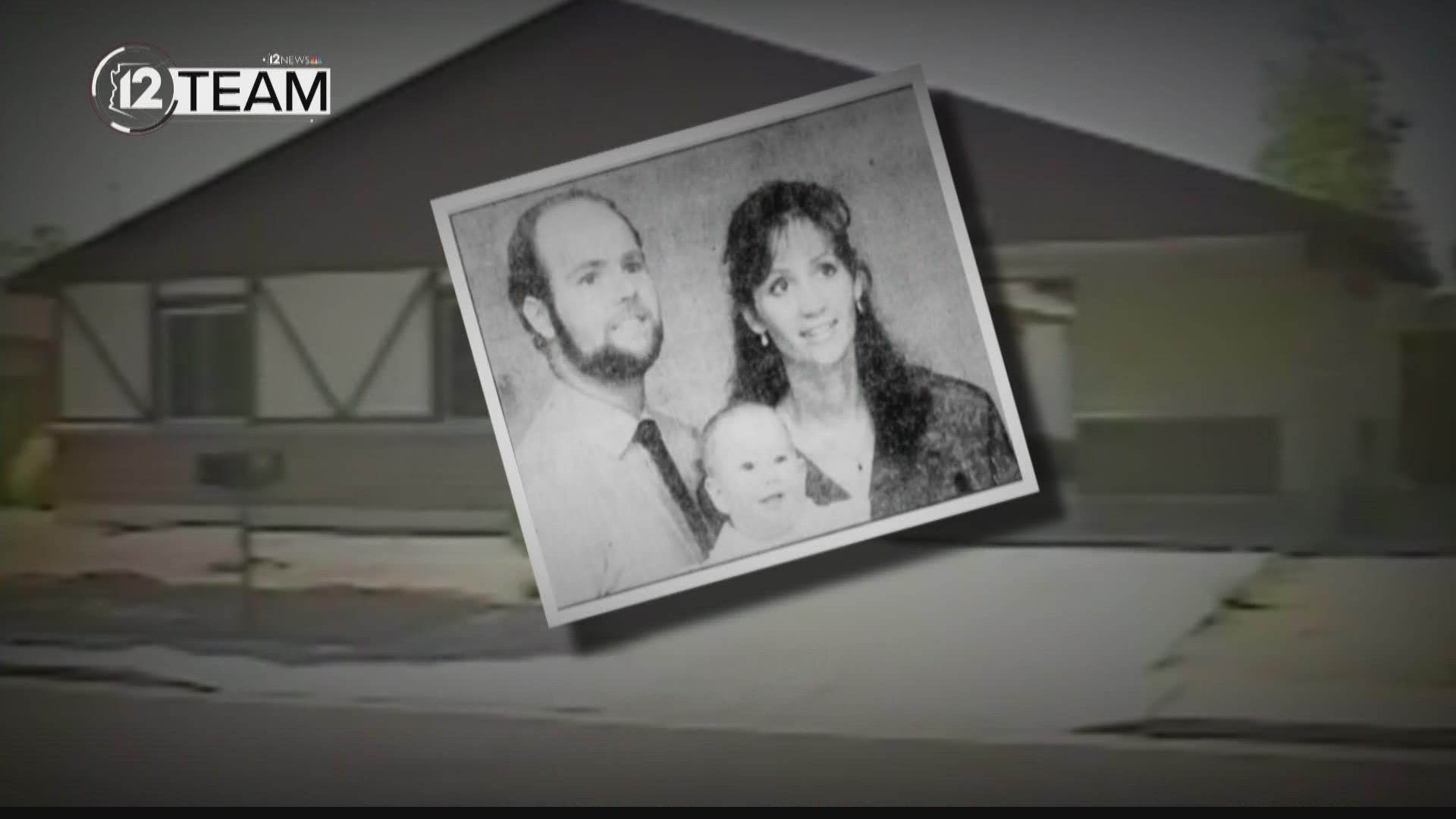MESA, Ariz. — A Mesa cold case murder may finally yield new clues after more than three decades.
Loretta Lynn, a Mesa wife and mother, was pregnant with her second child when she was stabbed to death in her bedroom in June of 1988.
The case confounded police and stunned Lynn’s hometown of Snowflake-Taylor where she grew up as Loretta McCray. Lynn and her husband were devoted to their Latter-Day Saint faith and admired by friends and family.
“She was the sweetest person. And so beautiful. She didn’t know how beautiful she was,” said Loretta’s cousin, Karen Dana.
Mesa Police confirm to 12 News this week that a Virginia-based DNA testing services lab, Bode Technology, is scheduled to produce a report this month that could potentially show a genealogical profile of the suspect.
An attempt in 2015 to process DNA for the same purpose was unsuccessful. An investigator for Mesa Police tells 12 News they’ve been notified by Bode that a report should be completed by the end of this month.
“You know, I’ve kind of been down this road before so it’s kind of like I’m kind of holding my breath a little bit,” said Dana, who has spent the last 33 years searching for new clues in the case and pressuring investigators to continue pursuing leads.
During the week of the murder in 1988, Loretta, her husband and their baby had just moved into a Mesa duplex they purchased near University and Greenfield. On their second night staying in the home, an intruder attacked Loretta while she was in bed, stabbing her over and over.
Loretta’s husband was on a graveyard shift and was cleared early on in the case of having any involvement.
Nothing was stolen from the house, and the couple’s baby was left unharmed in another room.
Police theorized the murder could have been the result of a burglary interrupted, or perhaps someone strung out on drugs. Prints obtained from the scene suggested the suspect was a man smaller in stature or a juvenile.
The most promising evidence was gathered by Loretta herself. Underneath a fingernail, a skin sample was collected that detectives believe belonged to the suspect. It was a sign Loretta fought back.
Breakthroughs in DNA technology have allowed forensic scientists to process samples of DNA to produce surnames of suspects in cold case murders across the country.
“Even though it happened in 1988, the technology just kept getting better and better and that’s what’s exciting for me. It’s like, ok, technology may be at a point now to be able to find someone,” Dana said.
Last week, Mesa Police announced the arrest of 58-year-old Thomas Cox of Colorado Springs for allegedly raping two women and killing one of them in Mesa in 1989. Mesa Police say DNA testing led them to Cox in that case.
In Loretta Lynn’s murder, there were no signs she was sexually assaulted.
Up to Speed
Catch up on the latest news and stories on the 12 News YouTube channel. Subscribe today.

